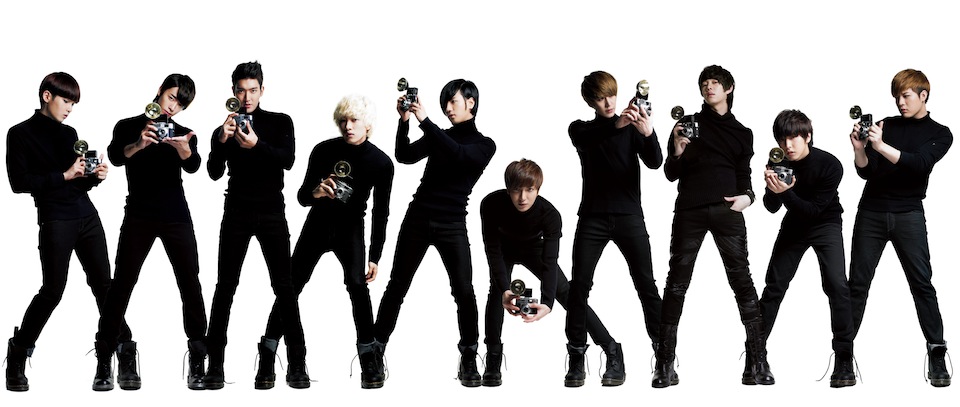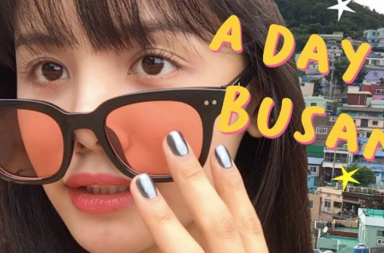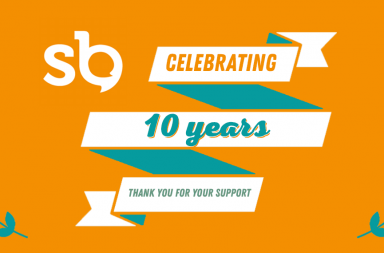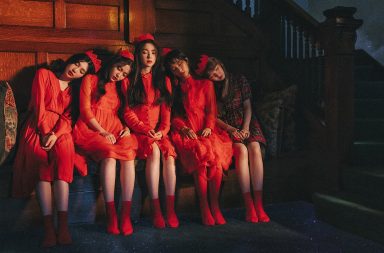Like most things K-poppy that somehow make an escape to the “outside world”, the recent “Kids React” video on K-pop has caused quite a stir within the K-pop community. While there were a decent amount of K-pop fans who laughed along with the video (because let’s face it: everything in that video was stuff that we already know and admit to being true but just don’t have the guts to say out loud), there was also the ever-persistent sect of ultra-defensive diehard K-pop fans who took immediate offense at the “insults” being hurled at their favorite K-pop idols, and responded by throwing insults of their own back at the kids themselves. Gil expounded on the ridiculousness of this behavior in her earlier reaction piece to the video. She made excellent points about how the K-pop videos shown were not representative of the entire K-pop industry, and that the video had a certain degree of truth in it that should serve as a warning to any K-pop group with ambitions in the American market. But most importantly, this video was another perspective on K-pop — a perspective that, in our occasional K-pop Kool-Aid induced stupors, is sometimes necessary.
But there’s another perspective in this video, and this perspective has been lightly considered by many K-pop fans who found themselves uneasy with this video because of the relatively narrow-minded comments made by the kids. These are comments that we’ve all heard before: “They all look the same!” and “I can’t understand them! Why aren’t they singing in English?” On the surface, these comments are rather obvious and seemingly superficial — questions that are so trivial that we usually shrug off when we ourselves encounter them in our own lives. These comments become all the more trivial when they’re asked by kids. Because kids don’t know any better, right? They’re just kids. They’re still learning. They’ll become more tactful once they grow up.
But there are two problems here. One, we don’t consider from where these kids learn their ignorance and from whom they will be taught how to flush out this ignorance. Granted, there’s almost never an appropriate situation for an adult to lash out at a child (to whom he/she is not a parent). But all too often does one hear a child say something inappropriate, and rather than being reprimanded by adults who know better, these adults chuckle at the child’s tenaciousness or tell themselves that “kids will be kids” and that “s/he’ll grow up eventually,” and leave the argument at that. And for some fortunate cases, some misbehaving children turn into well-rounded, open-minded adults who love and who love to learn about cultural diversity and exchange. But they are in the minority.
The same things said by the kids in this video — “They all look the same” and “Why don’t they speak English?” are the exact same things said by full-grown adults. And that’s where we have a problem. At the surface, these remarks seem harmless, obvious, and inoffensive, but in fact, they are the roots to more sinister beliefs and prejudices. The root of racial and cultural prejudice is ignorance, and being repulsed at a K-pop video because it’s not in English is a form of ignorance. And if this ignorance is manifested in childhood and is never remedied, it only gets worse.
This video has only been around for a few days, but I’m getting the idea that there are very few people out there like me who have reacted to it in such a strong manner. For quite some time, I was confused as to why I felt so offended about this video when clearly no one else was. It wasn’t until some time afterwards did I realize that the reason I was so affected by this video was because the kids in this video could’ve just as easily been the same kids that I grew up with.
I grew up in a town where Caucasians made up 98 percent of the total population while Asians made up 0.7 percent. I was one of five people of East Asian descent in my graduating high school class of 400. And despite this skewed ethnic breakdown, there was no reason for anyone in our town to believe that we had a problem with cultural diversity. For one, the town practically bled Democrat Blue, and the Cultural Diversity club at my high school was one of the school’s biggest organizations. Everyone believed that we were all nice people around here and that since there weren’t any gang wars or KKK encampments or Jim Crow-esque laws, there was nothing to worry about. We believed that we didn’t have a race problem, and so it was never addressed.
So when I was bullied on the school bus in the third grade by kids who pulled their eyes back and told me to show them kung-fu, I thought they were just trying to be funny. When classmates constantly asked me in the eighth grade if people in Thailand “really ate dog” (I’m actually Taiwanese), I thought it was just a normal misunderstanding. When I showed an SNSD video to a male friend in high school who told me that the video made him love “submissive Asian women” even more, I just thought that he was being a regular hormonal high school boy who was pointing out the obvious. And when I tell some of my old high school classmates of my intentions to gain fluency in Chinese, Japanese, and Korean, they joke and tell me why bother, because they’re all the same anyway.
These are just a small sum of the “offhand remarks” that my family and I have had to face in our years living in this town — a town that boasts itself on its “social progressiveness” and “tolerance.” My grade-school classmates were just as tenacious and well-spoken as the kids in that video, and they grew up to be teenagers and adults who continued to hold onto their ignorant views and spout off ignorant remarks and “jokes” without much conscience. As a result, nothing has changed — this town still believes itself to be culturally diverse and tolerant of all races and ethnicities, and any attempts to address this cultural ignorance are usually brushed off because, well, no one likes a person who can’t take a joke.
So will these kids grow up to be racist monsters? Probably not. But will they grow up and continue to contribute to a society that takes cultural ignorance lightly? My little, unassuming hometown in suburban America is certainly not the only one of its kind. Much of America seems to believe that this country is one where racial strife is an issue of the past, and that the “chaos” surrounding the women’s suffrage movement in the early 20th century and racial segregation in the 1960s was enough of a “punishment” for Americans to earn themselves the right to call themselves culturally aware. But is America today devoid of racism and cultural ignorance? Obviously not, what with KKK sects still alive and active, with people of Middle-Eastern descent receiving unwarranted suspicion from both civilians and the government, and especially with the news of yet another Asian-American soldier being driven to suicide after being abused by his white superiors. We wonder where all this hate stems from, if we as Americans call ourselves such a tolerant people. But extreme hatred often bubbles up from the most unassuming little things.
In the end, this video shouldn’t have just prompted a discussion about K-pop, or about butthurt fan reactions, or even about how K-pop will be received in the West. The video was bashed by fans who called it “narrow-minded,” but for all the wrong reasons. Narrow-mindedness towards K-pop is a fairly trivial matter when compared to narrow-mindedness towards cultural and racial matters. But for whatever reason, it’s become easier to point out the insults that are being thrown towards K-pop stars than it is to point out insults that are being thrown towards an entire culture. Cultural ignorance spreads because people ignore its existence. No one lashes out with a racially offensive remark unless they have been given an environment to do so. And an environment that lets people (children included) get away with making sweeping generalizations about an entire culture or instantly rejecting a culture that is not their own, is perfect for more culturally ignorant attitudes and thoughts to grow.
This video isn’t necessarily petition-signingly, picket sign-wavingly offensive — its biggest fault is that it features a bunch of kids who are largely culturally ignorant. But as viewers, we cannot fail to address this underlying issue when society has already chosen to ignore it purely out of habit.





